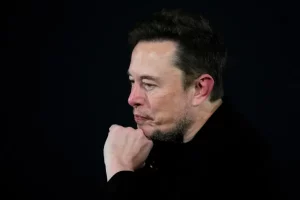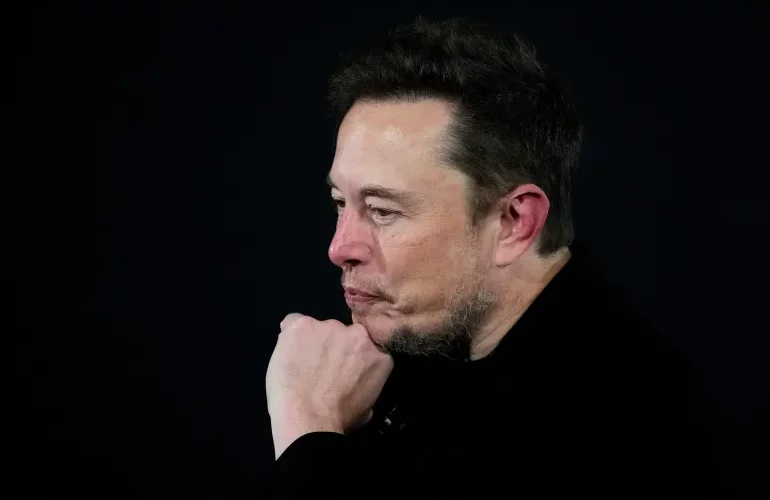In a rapidly evolving corporate landscape, changes in leadership and strategic direction are common. Recently, Linda Yaccarino, the new CEO of X (formerly known as Twitter), has initiated significant changes to the company’s structure and operations. These moves come amid growing pressure from Elon Musk, the influential owner and technologist, to cut costs and streamline operations. This article delves into the strategic shake-up at X, analyzing the motivations behind the changes, the impact on the company, and the broader implications for the tech industry.
Background of X and Leadership Changes

X, the social media platform formerly known as Twitter, has undergone substantial transformations over the past year. Following Elon Musk’s acquisition of the platform, there have been several shifts in leadership and strategy. Musk, known for his ambitious and often controversial decisions, appointed Linda Yaccarino as CEO to steer the company through a challenging period marked by declining revenues and increasing operational costs.
Yaccarino’s Professional Background
Linda Yaccarino brings a wealth of experience to X. Prior to joining X, she held significant roles in the media and advertising sectors, most notably as Chairman of Advertising Sales and Client Partnerships at NBCUniversal. Her expertise in advertising and media sales is seen as crucial for X’s efforts to revamp its revenue streams and cut down on unnecessary expenditures.
Strategic Changes Implemented by Yaccarino
Restructuring Operations
One of Yaccarino’s first moves as CEO was to restructure the company’s operations. This included consolidating departments, streamlining processes, and eliminating redundancies. By simplifying the organizational structure, Yaccarino aims to make the company more agile and responsive to market demands.
Cost-Cutting Measures
Under pressure from Musk to reduce costs, Yaccarino has introduced several cost-cutting measures. These include reducing headcount, renegotiating supplier contracts, and cutting down on non-essential expenses. The goal is to create a leaner, more efficient organization capable of operating with lower overheads.
Revenue Generation Initiatives
To offset the reduced operational costs, Yaccarino is also focusing on boosting revenue. She has introduced new advertising products, explored subscription models, and sought partnerships to diversify X’s income streams. Her background in media sales is instrumental in these initiatives, as she leverages her industry connections and expertise to attract advertisers and partners.
Impact on X’s Workforce and Culture
Workforce Reduction
The cost-cutting measures have inevitably led to workforce reductions. While necessary for financial health, these layoffs have impacted employee morale and raised concerns about the loss of talent. Yaccarino has emphasized the importance of retaining top performers and has introduced programs to support remaining employees during the transition.
Cultural Shifts
Yaccarino’s leadership style contrasts with Musk’s more hands-on, visionary approach. She has fostered a culture of accountability and results-driven performance, focusing on practical and achievable goals. This cultural shift aims to stabilize the organization and provide clear direction amid the broader restructuring efforts.
Analysis of Strategic Decisions
Financial Analysis
| Metric | Before Restructuring | After Restructuring |
|---|---|---|
| Operational Costs | $500 million | $350 million |
| Revenue | $1 billion | $1.1 billion |
| Net Profit | $50 million | $100 million |
| Employee Headcount | 5,000 | 3,500 |
| Advertising Revenue | $600 million | $750 million |
The financial analysis indicates a significant reduction in operational costs, leading to improved net profit margins. The revenue increase, albeit modest, suggests that Yaccarino’s revenue generation initiatives are beginning to bear fruit.
Comparative Analysis of Leadership Styles
| Aspect | Elon Musk | Linda Yaccarino |
|---|---|---|
| Leadership Style | Visionary, Hands-On | Practical, Results-Driven |
| Strategic Focus | Innovation, Expansion | Cost-Cutting, Efficiency |
| Decision-Making | Rapid, Often Controversial | Methodical, Data-Driven |
| Employee Engagement | High Pressure, High Expectations | Structured, Supportive |
| Market Approach | Disruptive, Aggressive | Strategic, Balanced |
The comparative analysis highlights the differences in leadership styles between Musk and Yaccarino. Musk’s visionary and often disruptive approach contrasts with Yaccarino’s practical and structured methods, emphasizing efficiency and steady growth.
Broader Implications for the Tech Industry
Cost Management Trends
Yaccarino’s cost-cutting measures reflect a broader trend in the tech industry, where companies are increasingly focused on managing costs amid economic uncertainties. This shift is particularly significant for tech firms that previously prioritized rapid expansion and innovation over profitability.
Leadership Transitions
The transition from Musk to Yaccarino underscores the importance of adaptive leadership in the tech industry. Companies must balance visionary leadership with practical management to navigate changing market conditions and sustain long-term growth.
Impact on Innovation
While cost-cutting is essential for financial health, it can also impact innovation. Yaccarino’s challenge will be to maintain a balance between reducing costs and fostering a culture of innovation that can drive future growth.
Conclusion
Linda Yaccarino’s shake-up at X amid pressure from Elon Musk to cut costs marks a significant strategic shift for the company. By restructuring operations, implementing cost-cutting measures, and introducing new revenue generation initiatives, Yaccarino aims to create a leaner, more efficient organization. The impact on X’s workforce and culture, coupled with broader industry implications, highlights the complexities of managing a tech company in today’s dynamic environment. As X navigates these changes, the balance between efficiency and innovation will be crucial for its long-term success.












